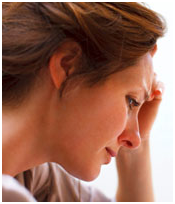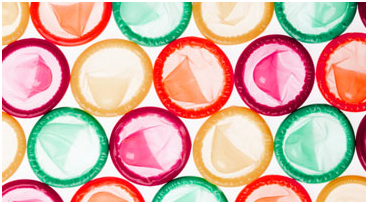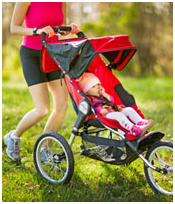

|
|
Postnatal check Your six-week postnatal checkYou should have your postnatal check about six weeks after your baby’s birth to make sure that you feel well and are recovering properly.
You may be offered an appointment to go back to the hospital where you gave birth, but otherwise you should see your doctor. It's time to introduce your baby to your doctor as the new member of the family. It's also a good opportunity to ask any questions and sort out any problems you may have. You may want to make a list of questions to take along with you so that you don't forget what you want to ask. You can also ask the doctor about contraception. You may wish to choose a different method from the one you previously used, especially if your pregnancy was not planned. The doctor or nurse can help you decide which method is right for you now. What usually happens at your postnatal check:
Tell your doctor if:
Your body after childbirthHaving a baby changes your body. You may not like the changes, or you may enjoy feeling different and feeling like a mother. If you’re happy the way you are, that's great.
If you feel uncomfortable with your body, though, you might want to make some changes. Some things will never be quite the same again. For example, your stretch marks will fade but will never go away completely. But other changes don't need to be permanent. You can tighten a saggy tummy with exercise, and any weight you've gained will gradually drop off if you eat sensibly and exercise. It won't happen overnight. It took nine months to make a baby and it could take at least that long to get back into shape again. In the meantime, give your body some little treats to cheer you up. It could be something as simple as painting your toenails. If it makes you feel good, then taking time to do it might be more important to you than getting 20 minutes extra sleep. The postnatal checkYou’ll be very busy looking after your baby, but remember to go for your postnatal check with your GP at around six to eight weeks after the birth. It's a time to talk to your GP about any health problems you’ve had since the birth, such as perinatal pain or pain following episiotomy, backache, piles or incontinence. It’s also a chance to talk about how you’re feeling and to discuss family planning. You can get pregnant again within three weeks of giving birth so it’s important to sort out your contraception before you start having sex again. See Sex and contraception for more information. Physical problemsA lot of women experience physical problems as a result of labour and birth or because of the kind of work involved in caring for young children. Problems such as recurring infections, back pain, a leaky bladder and painful intercourse are more common than people may think. For some problems, you can do a lot to help yourself. For example, if you’re suffering from a leaky bladder or getting that ‘falling out’ feeling, you may need to strengthen the muscles around your bladder, vagina and back passage (perineum). Pelvic floor exercises can help. A bad back can also be helped by exercise and by learning to use your back carefully. If something’s really bothering you, don’t be afraid to ask for help. Your doctor may be able to suggest treatment or refer you to a specialist or an obstetric physiotherapist, who can help with back and bladder problems and painful stitches. Pelvic floor exercisesPelvic floor exercises strengthen these muscles, which can help to stop incontinence, and make sex better too. You can do this exercise either sitting or standing. It can be done anywhere and at any time. For example, when you’re washing up, queuing in the supermarket or watching TV.
You may find it helps to imagine you’re stopping a bowel movement, holding in a tampon or stopping yourself passing water. In fact, the best way to find the muscles is to try stopping and starting (or slowing down) the flow of urine while you’re on the toilet. Deep stomach exercisesThis exercise will help to firm your stomach:
Easing back painThe following tips will help relieve an aching back:
Deep vein thrombosisDeep vein thrombosis (DVT) is a serious condition where clots develop in the deep veins of the legs. It can be fatal if the clot travels from the legs to the lungs. Flights that last over five hours, where you sit still for a long time, may increase your risk of DVT. Pregnant women and women who have recently had a baby are among those who are more at risk, so if you intend to travel by air, it's important to consult your GP or health visitor before the trip. They can give you advice on in-seat exercises to keep your circulation moving. If you develop swollen, painful legs or have breathing difficulties after a trip, see a GP urgently or go to the nearest Accident and Emergency department.
Feeling depressed after childbirth The baby bluesDuring the first week after childbirth, many women get what's often called the ‘baby blues’. This is probably due to the sudden hormonal and chemical changes that take place in your body after childbirth. Symptoms can include:
All these symptoms are normal and usually only last for a few days. Postnatal depressionDepression after a baby is born can be extremely distressing. Postnatal depression is thought to affect around one in 10 women (and up to four in 10 teenage mothers).
Many women suffer in silence. Their friends, relatives and health professionals don't know how they're feeling. Postnatal depression usually occurs two to eight weeks after the birth, though sometimes it can happen up to a year after the baby is born. Symptoms such as tiredness, irritability or poor appetite are normal if you've just had a baby. But these are usually mild and don't stop you leading a normal life. When you have postnatal depression, you may feel increasingly depressed and despondent. Looking after yourself or your baby may become too much. Other signs of postnatal depression are:
Getting help for postnatal depressionIf you think you have postnatal depression, don’t struggle alone. It's not a sign that you're a bad mother or are unable to cope. Postnatal depression is an illness and you need to get help, just as you would if you had the flu or a broken leg.
Talk to someone you trust, such as your partner or a friend. Then contact your doctor to ask for advice. TreatmentMilder cases of postnatal depression can be treated with counselling. More severe cases often require antidepressants and you may need to see a specialist. It's important to let your doctor know if you're breastfeeding. If you need to take antidepressants, they'll prescribe a type of medication that's suitable while you're breastfeeding. Avoiding alcoholAlcohol may appear to help you relax and unwind. In fact, it’s a depressant that affects your mood, judgement, self-control and co-ordination. It has even more of an effect if you’re tired and run-down. Be careful about when and how much you drink, and don't drink alcohol if you're taking anti-depressants or tranquillisers. Puerperal psychosisThis condition is extremely rare. Only 1 or 2 mothers in 1,000 develop a severe psychiatric illness that requires medical or hospital treatment after the birth of a baby. This illness can develop within hours of childbirth and is very serious, needing urgent attention. Other people usually notice it first as the mother often acts strangely. It is more likely to happen if you have a severe mental illness, a past history of severe mental illness or a family history of perinatal mental illness. Specialist mother and baby units can provide expert treatment without separating you from your baby. Most women make a complete recovery, although this may take a few weeks or months. Postnatal post-traumatic stress disorder (PTSD)Postnatal post-traumatic stress disorder (PTSD) is often the result of a traumatic birth, such as a very long or painful labour, or an emergency or problematic delivery. It can also develop after other types of trauma, such as:
The symptoms of postnatal PTSD can occur alone or in addition to the symptoms of postnatal depression.
The symptoms can develop straight after the birth or months afterwards.
Sex and contraception Having sex after childbirthThere are no rules about when to start having sex again after you've given birth. Immediately after the baby is born, many women feel sore as well as tired. Don’t rush into it. If sex hurts, it won’t be pleasurable. The first time, you may want to use a lubricating jelly (available from pharmacies) because hormone changes can make your vagina feel drier than usual.
You may be worried about the state of your body or about getting pregnant again. Men can have problems too. Apart from tiredness, a father’s sexual feelings will probably be much the same as before his baby’s birth. But many men worry about what’s right for their partner. They're unsure what to do and they feel worried and frustrated. It might be some time before you want to have sex. Until then, both of you may feel happier being loving and close in other ways. The following suggestions may help:
ContraceptionYou can get pregnant as little as three weeks after the birth of a baby, even if you’re breastfeeding and your periods haven’t started again. Use some kind of contraception every time you have sex after giving birth, including the first time (unless you want to get pregnant again). You’ll usually have an opportunity to discuss the options before you leave hospital after your child’s birth and at the postnatal check.
Sleep and tiredness
Getting enough sleep Most of the time, parents put up with tiredness. But if you’re feeling low, bad tempered and unable to cope or enjoy things, you need to find a way of getting more sleep, or at least more rest. Here are some tips:
If you can’t sleep at night even when your baby is sleeping, it could be a sign of postnatal depression. Healthy diet and fitness for new mumsBeing a parent is exhausting. It's easy to find that you have no time or energy to cook or eat properly. But eating well doesn't need to take lots of time or effort.
Try to make eating well a priority. It will make you feel better, and healthy eating is important for the whole family. Eat a healthy, well-balanced diet that includes at least five portions of fruit and vegetables a day. If you think you need to lose weight, talk to your doctor. Cut down on fat and sugar, but don’t go on a crash diet. Regular small meals will keep up your energy without adding to your weight. Healthy time-saving tips for new parentsTry cooking more than you need and freeze a couple of extra portions for another day. Tinned and frozen fruit and vegetables are quick to prepare and they count towards your five portions a day. Choose vegetables that can be eaten raw – for example, carrots and celery - and snack on these between meals if you get peckish. Remember, steaming is a healthy and quick way to cook vegetables, meat and fish. If friends or family are keen to help, take up their offer of a healthy home-cooked dinner once in a while. Breastfeeding and dietIf you're breastfeeding and you’re a healthy weight for your height, you don't need to eat a special diet. Eat a healthy, well-balanced diet, drink plenty of fluids (ideally water) and get lots of rest. Physical activityWhen you’re feeling tired, being active or taking more exercise may seem like the last thing you need. But activity can relax you; it can help your body recover after childbirth, keep you fit or improve your fitness, and make you feel better and more energetic. The following suggestions may help:
When can I start exercising?It's a good idea to wait until after your six-week postnatal check before you start to exercise regularly again. If you exercised regularly before giving birth and you feel fit and well, you might be able to start earlier. Talk to your doctor. What should I be aware of before exercising?Your lower back and core abdominal muscles are weaker than they used to be. Your ligaments and joints are also more supple and pliable, so it's easier to injure yourself by stretching or twisting too much. How do I know if I’m overdoing it?If you’re doing too much, you’ll experience extreme fatigue, feel run-down and take longer to recover from workout sessions. Quitting smoking for you and your familyLots of people smoke because they think it calms their nerves, but this isn't the case. Smoking just calms the cravings for nicotine, the addictive substance in cigarettes. The best thing you can do for your and your family's health is to stop smoking.
|










